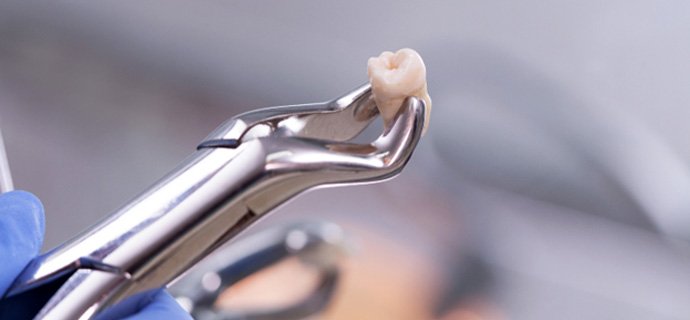Root Canal Therapy – Indianapolis, IN
A Relief for Infected & Achy Teeth
 Unfortunately, people sometimes face urgent care issues with their teeth. In particular, they might receive dental injuries or harmful oral bacteria. Should you experience such a dental emergency, it’s essential that you get prompt treatment. Luckily, though, root canal therapy with Indianapolis Family Dentistry can solve these tooth problems. After all, it can repair tooth damage and stop infections! If you’d like to learn more, continue reading or call our office.
Unfortunately, people sometimes face urgent care issues with their teeth. In particular, they might receive dental injuries or harmful oral bacteria. Should you experience such a dental emergency, it’s essential that you get prompt treatment. Luckily, though, root canal therapy with Indianapolis Family Dentistry can solve these tooth problems. After all, it can repair tooth damage and stop infections! If you’d like to learn more, continue reading or call our office.
Do I Need Root Canal Therapy?
 You should watch for specific symptoms to know if you need a root canal. These signs include the following:
You should watch for specific symptoms to know if you need a root canal. These signs include the following:
- Facial swelling, especially around your cheeks
- Tooth sensitivity (towards hot or cold foods, beverages, etc.
- A persistent fever
- Pain from normal chewing and biting
- A pimple-like sore on the gums near the affected tooth
The Root Canal Process
 Root canal therapy often starts with an emergency dental visit. A dentist will perform a quick oral exam during this meeting to see if you show worrisome signs. If your tooth is broken, decayed, or infected, they’ll suggest root canal therapy to treat your issue.
Root canal therapy often starts with an emergency dental visit. A dentist will perform a quick oral exam during this meeting to see if you show worrisome signs. If your tooth is broken, decayed, or infected, they’ll suggest root canal therapy to treat your issue.
The therapy itself is fairly straightforward. First, your dentist will numb the treatment area with an anesthetic. Next, they’ll use special instruments to remove the tooth pulp causing your pain. From there, the dentist will use gutta percha to rebuild the pearly white. You’ll receive a dental crown that protects your treated tooth at a later visit.
Post-treatment, you’ll need to follow proper aftercare for a few days. In particular, your dentist may suggest taking over-the-counter pain relievers and antibiotics. It’d also be a good idea not to chew on the side of your mouth that was treated.
The Benefits of Getting a Root Canal
 Despite its notoriety, root canal therapy in Indianapolis has many benefits. More specifically, it offers perks like:
Despite its notoriety, root canal therapy in Indianapolis has many benefits. More specifically, it offers perks like:
- A Lifelike Smile: Besides protecting your tooth, the crown provided by treatment will also hide your dental damage.
- Tooth Preservation – Unlike the alternatives, root canal therapy will let you preserve your natural tooth. As such, it improves your oral health and saves you money in the long run.
- Long-Term Results: Given proper care, a tooth treated with root canal therapy can last a lifetime.
- Pain-Free Treatment - Contrary to rumor, root canal therapy doesn’t hurt. The procedure relies on sedatives and anesthetics to ensure a pain-free process.
Understanding the Cost of Root Canals

Your dentist may have recommended that you undergo root canal therapy to preserve one of your natural pearly whites. Even though you can expect to appreciate many benefits from this treatment, it’s important to know about the overall cost of the procedure before committing to it. Since every process varies between patients, we can’t provide you with an exact precise estimate without an initial consultation. That said, our team is more than happy to walk you through your financing options and what to expect from the cost of a root canal in Indianapolis.
Factors That Can Affect Root Canal Cost

We won’t be able to give you an exact amount of what you’ll pay for your tooth-preserving procedure. However, here are a few factors that can affect the overall price:
- The difficulty of the treatment – The more complex or extensive your procedure will be, the more likely we’ll need to bring in a specialist, which will hike up the price.
- The location of your tooth Logically, extracting more teeth can raise the overall cost of care.
- The overall complexity of the case – If your infected or damaged tooth is a molar, then it may have a higher upfront cost, as your rear teeth typically consist of more roots than your front ones.
- Extra services – Should you require additional treatments, such as dental crowns, the total cost may increase.
Is It Cheaper to Pull My Tooth?

Many patients figure that skipping a root canal and simply pulling out their affected tooth will be more convenient. However, this is far from the truth. Once you have a missing tooth, your mouth will have an increased risk of other nearby pearly whites shifting out of place to fill the gap. To avoid the complications that come from this (such as jawbone deterioration and further tooth loss), you’ll have to consider tooth-replacement options like crowns, bridges, and dental implants, which can raise the price much higher than you might expect. By opting for root canal therapy, you can save yourself time, money, and headaches from the consequences of tooth loss.
Does Dental Insurance Cover Root Canal Therapy?

Since root canals are considered essential dental procedures, many dental insurance companies cover about 50-80% of the total cost after you’ve met your annual deductible. Every plan is different, however, so you’ll want to double-check the details of your plan with your provider. You can also consult our friendly and knowledgeable dental staff to help you navigate your policy and maximize your benefits!
Other Options for Making Root Canal Therapy Affordable

Even if you don’t currently have dental insurance, it doesn’t mean you’ll have to pay completely out-of-pocket. Our team understands the importance of being able to afford essential treatment to preserve healthy pearly whites. That’s why we’re proud to offer our Indianapolis Family Dentistry Membership Plan! With one low flat annual or monthly fee, you can receive significant discounts on all treatments, including root canal therapy. You’ll be able to undergo the necessary procedure to maintain a comfortable and healthy smile.
Root Canal FAQs

If your dentist has recommended a root canal, don’t panic! We know you probably have several concerns about the road ahead, but your dentist at Indianapolis Family Dentistry will explain everything so you know exactly what to expect. They’ll ease any apprehensions about having a root canal in Indianapolis during your consultation. While you wait for your appointment, here are the answers to the most frequently asked questions.
How Long Does It Take to Recover From a Root Canal?
You don’t have to worry about a long recovery because your dentist in Indianapolis uses the latest treatments and techniques for a less invasive procedure. You’ll go home the same day and most patients can resume their regular activities right away. After the effects of any numbing agents or sedatives dissipate, your tooth might be tender for a few days. You can manage any discomfort using an OTC pain reliever. Eat soft foods until any soreness improves. Your dentist will review any additional aftercare instructions before you go home.
Can I Eat Before a Root Canal?
Most patients can eat before their root canal, but don’t forget to brush and floss. Some patients may have dietary restrictions, like those benefiting from dental sedation. Your dentist will inform you about any limitations during your consultation. However, most often, it’s recommended to eat a healthy meal before coming in for your appointment.
What Should I Do Before a Root Canal?
A root canal doesn’t require much preparation. Your dentist will learn more about your medical and lifestyle history to create a personalized treatment plan. If you’re interested in dental sedation during your root canal, like nitrous oxide, they may have additional instructions, like not taking certain medications. You don’t need to worry about filing pre-authorizations for insurance claims. We will work on your behalf with your dental insurance before your appointment, so you have one less thing on your plate. Plan a few soft food meals before the big day and wear something comfortable. Don’t forget to bring your ID and insurance cards with you to your appointment.
How Long Do Root Canals Last?
Root canals can last for a lifetime with a qualified dentist by your side and the right aftercare routine. Our office uses advanced techniques and technologies to ensure any areas of decay or infected pulp have been removed completely. Your tooth will be sterilized and sealed to prevent new bacteria from entering the roots. It’s not uncommon to need a dental crown after the procedure. It provides an added layer of protection for your tooth while restoring its health and function. You can prevent complications after your procedure by committing to your oral hygiene. Besides brushing and flossing, use an antimicrobial mouthwash to kill any remaining bacteria. Visit your dentist every 6 months for a cleaning and checkup. We’ll check your tooth at each appointment to ensure there aren’t any concerns, like new decay. A root canal provides the lasting results you need to preserve your tooth.


